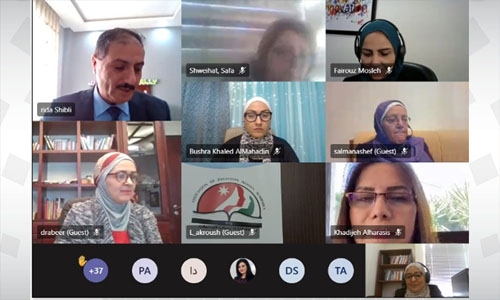Social capital first obstacle to women in entrepreneurship: Bahrain
TDT | Manama
The Daily Tribune – www.newsofbahrain.com
The challenges faced by women in developing countries in the area of entrepreneurship and innovation have been highlighted in research presented by the Arabian Gulf University (AGU) at the First International Conference, "Women in Academia".
Innovation and Technology Management Department professor Dr Fairouz Al Dhammour represented the AGU organised by the Association of Jordanian Women Academics in cooperation with the University of Jordan.
Prepared by Dr Al Dhammour and Professor at Mutah University Dr Abeer Al Khawaldeh, the research summarised the challenges from the perspectives of female academics, shedding light on the important role of Information and Communication Technology (ICT) in empowering women entrepreneurs and studying the challenges that females face in developing countries in the field of entrepreneurship and innovation.
Dr Al Dhammour affirmed the importance of the research in narrowing the existing gap between the high female entrepreneurship intent in these countries and the low percentage of business activities being carried out, according to the findings of the 2019 Women's Business Report issued annually the Global Entrepreneurship Monitor (GEM).
"The research concluded with several challenges, the most important of which were social capital," Dr Al Dhammour said.
"In this context, the study recommended the need to help build social relationships and use them in an appropriate manner, which helps facilitate female entrepreneurship activities by identifying potential markets and opportunities, reducing transaction costs and attracting clients, investors and suppliers."
The professor clarified that the results of the research showed that social capital is considered the first obstacle to women's intent in entrepreneurship, adding that human capital represents a serious challenge identified in this research, and citing several other publications, reports and researches that documented this issue, including Danish and Smith (2012), Azmat (2013) and Bhardwaj (2014).
The research, which included an online survey questionnaire, indicated that entrepreneurship education is a vital factor in building human capital, breaking cultural taboos and female stereotypes in business, and promoting an entrepreneurial culture.
Dr Al Dhammour and Dr Al Khawaldeh recommended the introduction of entrepreneurship courses into schools' curricula from an early stage, to raise awareness about this issue.
The professors also said around 90 per cent of the participants in the survey indicated that human capital is an important problem, making it the second obstacle to women's participation in entrepreneurial work, while they also underlined the effective use of ICT as an important enabler of female entrepreneurship and innovation in developing countries.
"The role of ICT in empowering women in developing countries to become entrepreneurs was considered a critical factor by the participants who saw the growth of new ICTs, such as the Internet and social media networks, provides new opportunities for women to become entrepreneurs, as well as to run their own businesses efficiently," Dr Al Dhammour said.
"The main findings of this study indicate that human and social capital plays an important role in impeding women's entrepreneurship. However, it also emphasised the positive role of ICT in empowering women. Hence, an integrated theoretical model for accepting information technology will be required to consider such aspects for future research in this field. This future work will add to the research and publications on the use of ICT and its outcomes by developing a comprehensive understanding of how ICT lead to women's empowerment."
Related Posts

